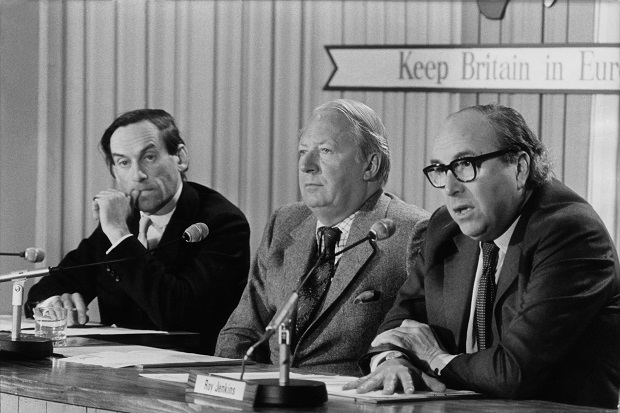Following last week’s Purple Revolution in which the pro-democracy Faragist rebels liberated Britain from the hated pro-EUSSR LibLabCon stooges (at least this is the version I’m telling my kids to repeat to their teachers), a number of people have written about what appears to be the opening of a ‘culture war’ in Britain.
Andrew Sullivan talks about ‘blue Europe and red Europe’ in the sense of America’s blue and red states, and sees Ukip as representing the latter just as the Republican Party does conservative, left-behind America. I think there’s some truth in that.
Dan Hannan, in true conservative style, clutching doom from victory, has suggested that the rise of Ukip is actually a bad thing for the Eurosceptic cause, latching the subject onto the divisive issue of immigration. The figures do bear this out, as support for the EU is rising just as Nigel’s Army has swept the country.
Our own Nick Cohen has expanded on this, pointing out that while supporting Sir James Goldsmith’s Referendum Party in 1997 entailed signing up for national sovereignty and nothing else, Ukip has now started a culture war that makes it very hard for moderately Eurosceptic liberals like him to do anything but side with the federalists.
It’s certainly true that Ukip has evolved from its original function of pure Euroscepticism. Its first leader, Alan Sked, was a Liberal, and repeatedly turns up in the media to denounce the party (I like James Delingpole’s comment that ‘Interviewing Alan Sked to find out what he thinks of UKIP is like digging up Syd Barrett to find out where Floyd went wrong post Dark Side.’)
Ukip has grown out of public frustration that those in a position of power have vastly different worldviews to people like them, and it has taken this role because European unity is an intrinsic part of that gulf. There aren’t many ideas out there that are more elitist than the European project; in Britain, at least, it was brought about by a miniscule number of politicians and civil servants who blatantly lied to the public about its true purpose, led by history’s greatest monster, Edward Heath.
Many people are prepared to go along with it because they like the freedom of movement and are persuaded by the economic arguments, but it would be untrue to suggest the motives of Britain’s federalists were entirely or even mostly economic – it’s driven by cultural factors, in particular opposition towards old-style nationalism, Little Englanders, and shire Tories, with a fair amount of snobbery thrown in. Remember this Independent editorial from 1992?
Cameroon Conservatism took this elite cultural snobbery to extremes. As Douglas Murray notes in this week’s magazine. David Cameron mocked Ukip sympathisers as ‘fruit cakes, loonies and closet racists’, and made clear that he would do without their support. Instead he pursued mythical new customers whose politics were determined by Gaia and gay marriage. Cameron’s efforts have been fruitless (even self-destructive) precisely because we don’t do culture wars in Britain – something many people are proud of, because at the very least we don’t have the extremism found both on America’s Left and Right. But it does mean that, without opposition or checks and balances, and without having to prove its ideas, social liberalism (to which the Tory Party now subscribes) has evolved at breakneck speed.
Nigel Farage and Ukip were quick to see the gap in the market for a culturally conservative opposition – critical of sexual liberation, political correctness, the green agenda and, above all, mass immigration. On top of this, Ukip recognised that with the expansion of the European Union eastwards and the economic collapse of southern Europe the issues of mass immigration and the European Union cannot be separated, whatever David Cameron would like to think.
Whether Ukip cheers or horrifies you, there are perfectly logical reasons for its growth and evolution. And if Europe has become part of a British culture war that many would rather it stayed out of, then it is a war that the federalists helped to start.






Comments